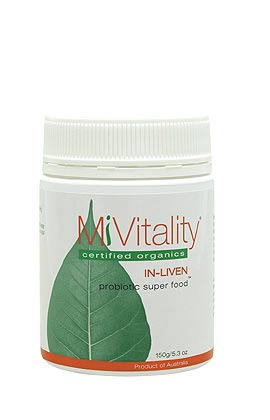|
Probiotic supplements in the news!Probiotic supplements made the news a few times in 2006. The Guardian newspaper published two articles with some useful facts: On Wednesday February 8, 2006, The Guardian reported on the efficacy of functional foods and probiotic supplements. Key issues about typical products available in supermarkets were raised such as 'high sugar content' (quote from the article by Felicity Lawrence): Quote: A report for the Food Standards Agency on probiotic products found that some of the added bacteria did not actually survive in the digestive system to reach the parts they were supposed to help. The strain used in Yakult was one of those that survived in some tests but not in others. The Japanese company says, however, that it has its own independent research to support its claims. Danone, too, points to extensive research on the value of its probiotics and says various studies are underway to show that its added bacteria survive. It concedes however that "results reported by individual Actimel users can be as individual as their gut flora profile and overall diet and other lifestyle factors." The independent Drugs and Therapeutics Bulletin says that the evidence as to whether probiotics work is patchy in relation to the gut and non-existent in terms of improving general wellbeing. The evidence for probiotic effect was strongest for helping with diarrhoea caused by antibiotics and infections or with flare-ups of inflammatory bowel disease. "There are a lot of, how shall we put it, interesting claims out there. We don't know whether they are true or not," says Michelle Smythe, of the Which? food campaign team. Which? wants products properly evaluated by regulators before they are sold. One of Smythe's concerns is that probiotic foods claiming to be good for you are often high in other unhealthy ingredients. Two thirds of the probiotics Which? looked at were high in sugar, for instance Actimel has 14% added sugar, while Yakult has 18%. But without sweetening, these probiotics full of very sour bacteria would be simply "unpalatable", as Yakult puts it. Proposals were brought before the European parliament last year to prevent foods that are high in fat, sugar or salt making other health claims, and to ensure that any health claims were proved before the products reached the shelves, but they were rejected. New proposals to introduce an approvals scheme that would replace the current voluntary code of practice come back to the EU next month, but there has been heavy lobbying from industry to stop it, according to Smythe..." See our main probiotics information page for a summary of things to look out for in good probiotic supplements – and links for where to find what we consider the BEST probiotic supplements currently available – probiotic supplements that contains NO added sugar – and sufficient live bacteria to really help your digestive system recuperate effectively. On August 8 2006, probiotics were in the news again. According to an article by Sarah Hall, health correspondent for the Guardian: (quote) The warning was made by Glenn Gibson, professor of food microbiology at the University of Reading, together with Dr Sandra McFarlane, a microbiologist at Dundee University, and Professor Christine Edwards, head of human nutrition at Glasgow University..." "...Prof Gibson, who led the research, warned that half of the 50 products available in the UK contained the "wrong" bacteria and were of no benefit. "Half the products on sale don't contain the bacteria they say on the label...there are a lot of manufacturers - many of which sell products on the web - who are unheard of and these are the ones to worry about. Half of the products you can buy have got the wrong bacteria in them, the wrong amount, or are completely sterile..." The article continued by stating (quote): The scientists also advised that anyone over 65 should take the products. Past this age, the number of healthy bacteria decrease 1,000-fold to around just 2% of the gut's natural flora. Anyone taking antibiotics should also take a probiotic, as should people going into hospital in the hope that it might help ward against hospital-acquired infections such as MRSA or Clostridium difficile. Prof Edwards said the ideal would be for people to look at their entire diet, but with only 8% of Britons eating a healthy diet, functional foods such as probiotics may be necessary.” As functional foods go, it is generally agreed that probiotic supplements are likely to be useful, and even necessary, for many people today. Probiotic supplements are likely to help especially those consuming a typical Western diet, as in the US and the UK. But be sure you are not wasting your money on products that do not contain the right bacteria, in the right quantities. Also check that the products are not heavily laden with sugars!...You CAN find excellent probiotic supplements – and we have the details of those we consider to be the best products available today here: Our "about probiotics" page! OR WHY NOT?... Probiotic Superfood! - Take a look now. |


